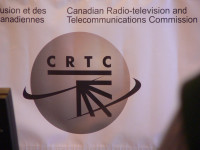Bell announced plans this morning to buy MTS, the Manitoba-based wireless carrier that has been critical to creating a more competitive wireless market in the province. The nearly $4 billion deal would include a commitment to divest one-third of MTS wireless customers to Telus. The agreement is still subject to regulatory and shareholder approvals along with figuring out how some customers go to Telus and some stay with Bell. While the government has yet to articulate a clear strategy for wireless competition in Canada, the deal appears to kill the hope of four carriers in each market and will likely mean sharply increased prices for Manitoba consumers.
With the four competitors in Manitoba – Bell, Telus, Rogers, and MTS – the province features some of the lowest wireless prices in Canada. Compare Bell’s wireless pricing for consumers in Manitoba and Ontario. The cost of an unlimited nationwide calling share plan in Manitoba is $50. The same plan in Ontario is $65. The difference in data costs are even larger: Bell offers 6 GB for $20 in Manitoba. The same $20 will get you just 500 MB in Ontario. In fact, 5 GB costs $50 in Ontario, more than double the cost in Manitoba for less data. The other carriers such as Rogers and Telus also offer lower pricing in Manitoba. The reason is obvious: the presence of a fourth carrier creates more competition and lower pricing. With MTS out of the way – and Bell and Telus sharing the same wireless network – prices are bound to increase to levels more commonly found in the rest of the country.











